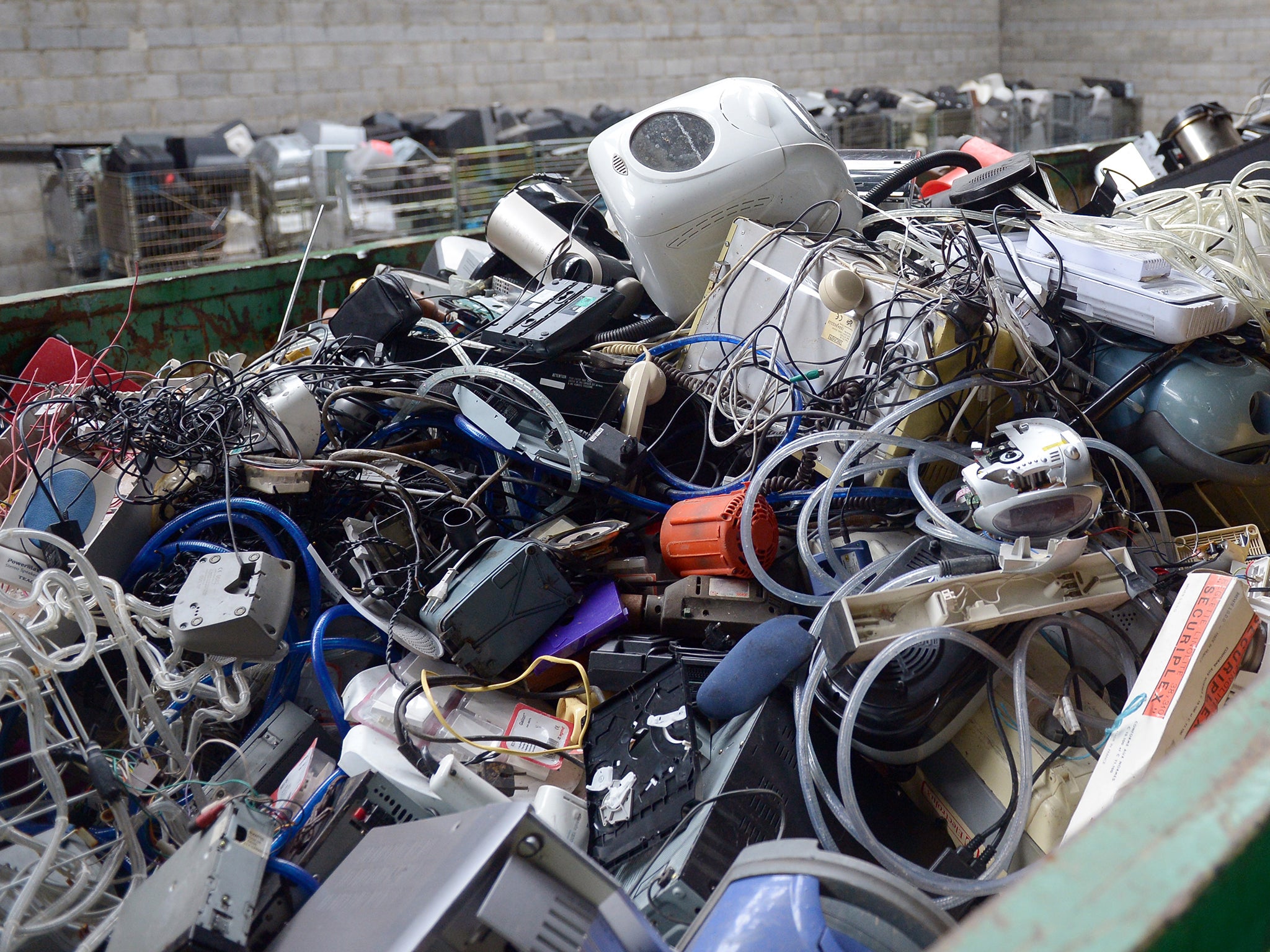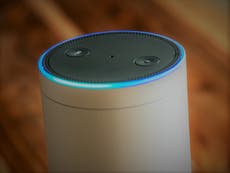Amazon and Apple ‘dodging responsibility’ for electronic waste
‘They are clearly not fulfilling their responsibility,’ MPs claim

Your support helps us to tell the story
From reproductive rights to climate change to Big Tech, The Independent is on the ground when the story is developing. Whether it's investigating the financials of Elon Musk's pro-Trump PAC or producing our latest documentary, 'The A Word', which shines a light on the American women fighting for reproductive rights, we know how important it is to parse out the facts from the messaging.
At such a critical moment in US history, we need reporters on the ground. Your donation allows us to keep sending journalists to speak to both sides of the story.
The Independent is trusted by Americans across the entire political spectrum. And unlike many other quality news outlets, we choose not to lock Americans out of our reporting and analysis with paywalls. We believe quality journalism should be available to everyone, paid for by those who can afford it.
Your support makes all the difference.Amazon and Apple have been “dodging their environmental responsibilities” for the rising amount of electronic waste, MPs have said.
An inquiry into e-waste by the Environment Audit Committee (EAC) concluded that global tech giants need to be held more accountable for what happens to the products they sell after customers throw them away.
More than 150,000 tonnes of e-waste is thrown away each year in the UK, as people discard broken or obsolete computers, smartphones and other electronics.
“For too long companies like Amazon and Apple have been dodging their environmental responsibilities for the products they sell. Too many devices have a limited, and sometimes decreasing, lifespan and end up in bins, eventually going to landfill or incineration,” said EAC chair Philip Dunne.
“There is no chance of precious metals being retrieved, which could quickly become a huge problem as the rare and disappearing materials are crucial for renewable energy such as wind turbines, solar panels and electric car batteries.”
Precious metals found in laptops and smartphones include gold, silver and platinum. The estimated worth of all of these materials within thrown-away electronics is $62.5 billion (£47bn) per year.
The UK is responsible for producing the second-highest amount of e-waste per person in the world, according to a recent report by Green Alliance.
Only Norway generated more e-waste, though the UK lags behind when it comes to recycling. It is estimated that around 40 per cent of the discarded electronics are sent abroad.
“A lot of it goes to landfills, incineration or is dumped overseas. Under current laws, producers and retailers of electronics are responsible for this waste, yet they are clearly not fulfilling that responsibility," MPs said.
“Given the astronomical growth in sales by online vendors, particularly this year during the coronavirus pandemic, the EAC calls for online marketplaces to collect products and pay for their recycling to create a level playing field with physical retailers and producers that are not selling on their platforms.”
Apple said it was “surprised and disappointed” with the EAC report, claiming it did not reflect the firm’s efforts to conserve and recycle resources.
“There are more options for customers to trade in, recycle and get safe, quality repairs than ever before, and our latest Apple Watch, iPad, and iPhone lineup all use recycled material across key components," a spokesperson said.
A spokesperson for Amazon added: "Amazon is committed to minimising waste and helping our customers to reuse, repair, and recycle their products, and we provide a range of options that anyone can easily access through the Amazon Second Chance website.
“We have supported the recycling of more than 10,000 tonnes of electronic waste in the UK over the last decade.”

Join our commenting forum
Join thought-provoking conversations, follow other Independent readers and see their replies
Comments